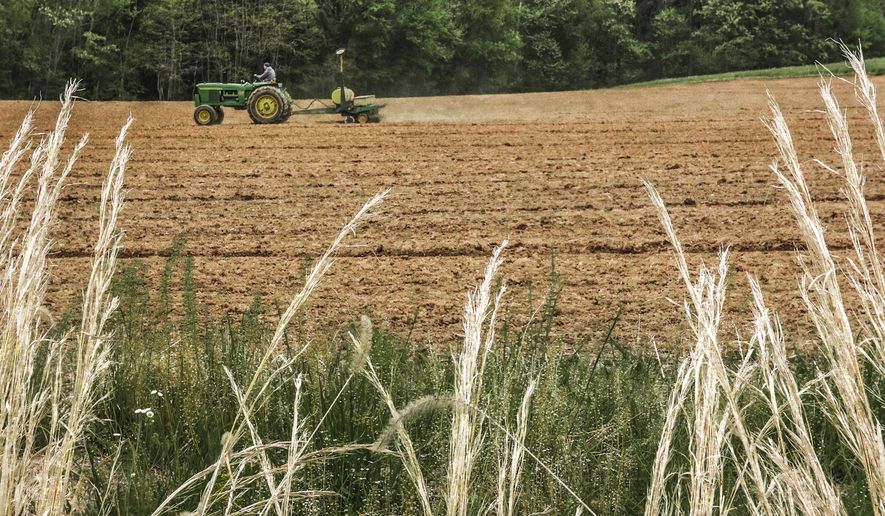President Biden announced steps to bolster production on U.S. farms Wednesday in a bid to reverse food shortages and pin blame for rising costs on Russian President Vladimir Putin’s invasion of Ukraine.
Mr. Biden will travel to a family farm in Kankakee, Illinois, to promote the moves, which include doubling spending on domestic fertilizer production.
The president is battling high prices of consumer goods in the wake of the pandemic and supply chain shocks. Republicans say he overheated the economy with virus-relief money and hasn’t done enough to ease energy prices, prompting Mr. Biden to pin the blame for rising gas prices and agricultural shocks on Mr. Putin.
“Putin’s unjustified invasion of Ukraine has cut off a critical source of wheat, corn, barley, oilseeds, and cooking oil,” the White House said in a fact sheet. “It has also disrupted global supply chains for fertilizer, which farmers depend on to maximize yields. These and other actions, combined with the ongoing pandemic-related disruptions to global supply chains, have put pressure on food prices, with global food prices increasing nearly 13% following Putin’s invasion.”
Mr. Biden announced three steps to prop up farm production:
• The administration will expand the number of counties eligible for double cropping insurance. Double cropping allows farmers to plant a second crop on the same land in the same year, though it comes with risk and sometimes companies won’t issue crop insurance for it.
The Biden plan will expand insurance for double cropping to up to 681 additional counties, bringing the total number of eligible counties to 1,935.
• The administration plans to speed up its application process for a U.S. Department of Agriculture program that helps farmers with “precision agriculture,” a technology system that helps farmers direct nutrients to where they are needed to reduce fertilizer usage without sacrificing yields.
• The administration will increase its investment in domestic fertilizer production to $500 million instead of $250 million.
“Fertilizer prices have more than doubled since last year, due in part to supply chain disruptions created and exacerbated by Russia’s invasion of Ukraine, including rising energy costs,” the White House said.
• Tom Howell Jr. can be reached at thowell@washingtontimes.com.




Please read our comment policy before commenting.